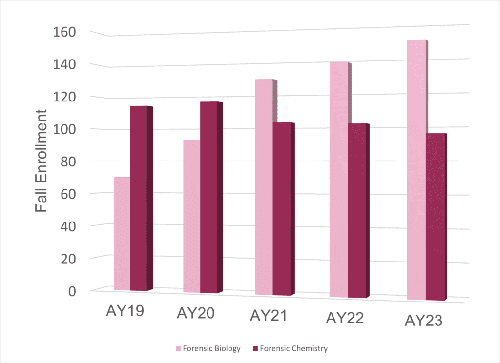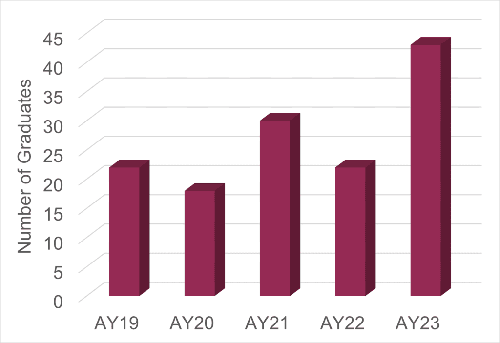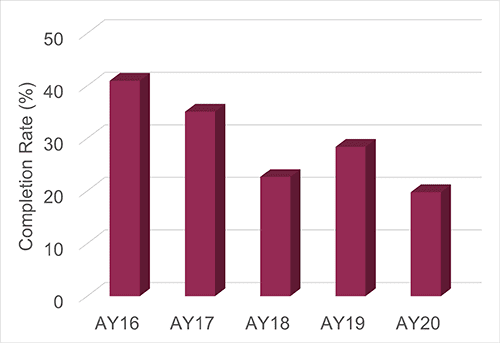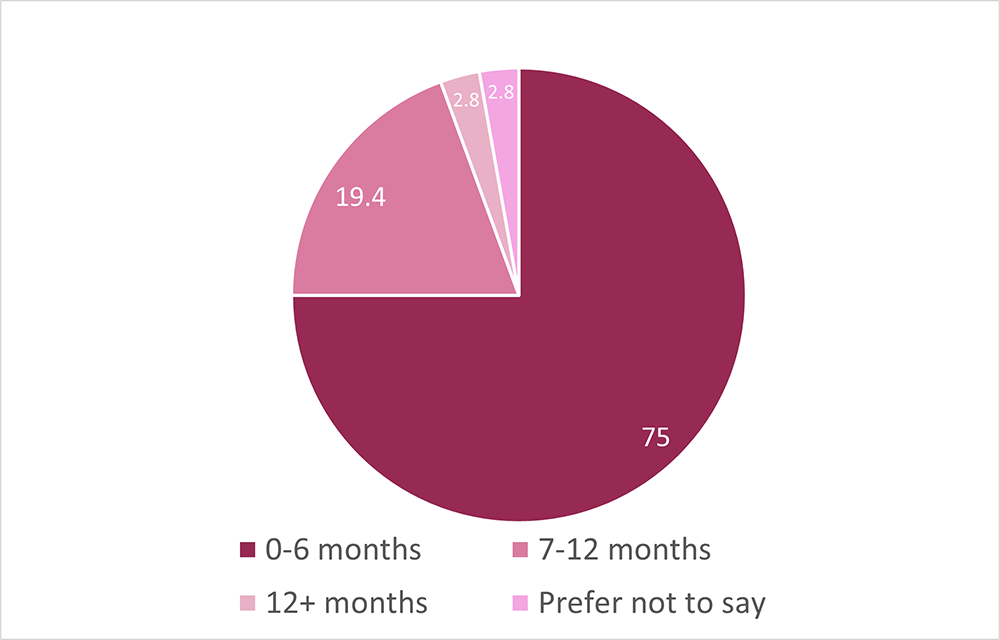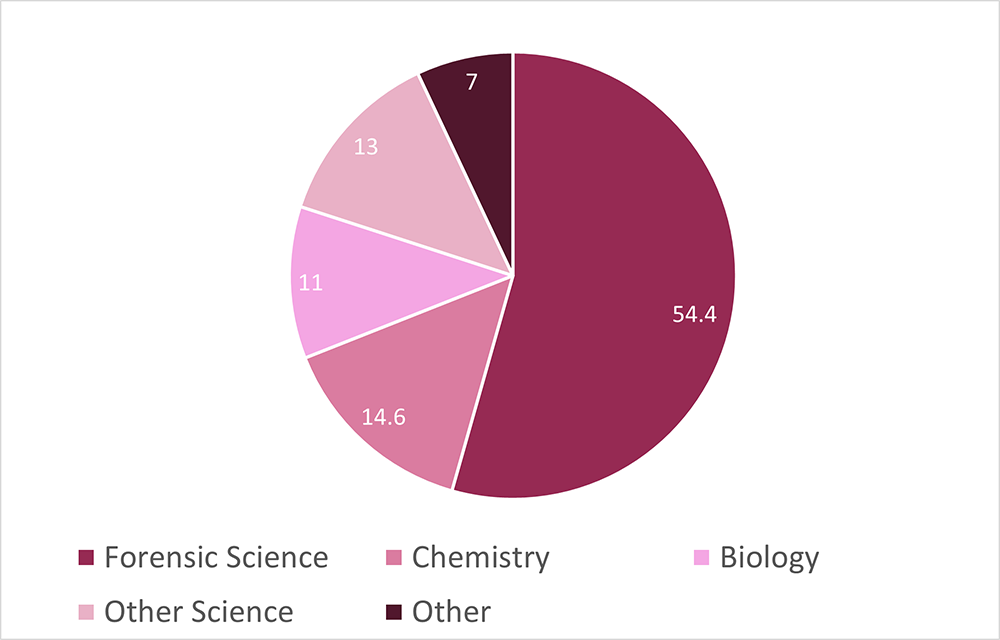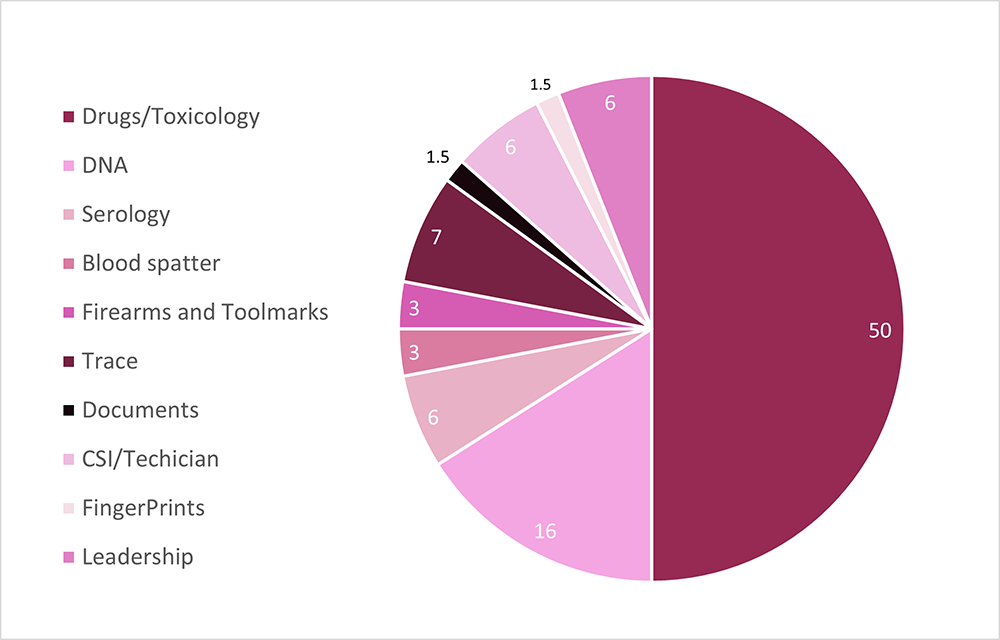
Bachelor of Science in Forensic Science
Department of Chemistry
College of Science, Technology, Engineering & Mathematics
Bachelor of Science in Forensic Science
Department of Chemistry
College of Science, Technology, Engineering & Mathematics
On-Campus
Program
120 Credit Hours
to Graduate
Full-Time, In-State Tuition
$5,010 Per Semester
Low-Cost Textbooks
For All Students
Use Your Investigative Skills to Help Solve Tough Cases
Work with cutting-edge technology and aid criminal investigations
Earn your forensic science degree from one of the longest-running forensic science programs in the United States. EKU boasts a well-established program with an excellent national reputation as one of 18 undergraduate programs accredited by the American Academy of Forensic Sciences. You’ll learn how to apply your scientific knowledge to solve real-world chemistry problems in support of investigative work. You will understand the role in the criminal justice system and practice the written and oral communication skills necessary to share your findings with others.
Learn More
Career Outlook
State and local governments are expected to continue to hire forensic science technicians to process their high caseloads. Additionally, scientific and technological advances are expected to increase the availability, reliability, and usefulness of objective forensic information used as evidence in trials. As a result, more forensic science technicians will be needed to provide forensics information to law enforcement agencies and courts.
Employment of forensic science technicians is projected to grow 13 percent from 2022 to 2032.
– U.S. Bureau of Labor Statistics
Why EKU?
Program Options
Choose between two specialty concentrations that offer the opportunity to tailor the degree to specific career goals and give you a competitive edge in the state, regional, or national job market. Options include:
Internship Information
A Forensic Science Internship involves field placement — it is a first hand work experience in which students have the opportunity to learn how academic knowledge is applied in the work place. Some people learn more through experience and an internship provides that opportunity. As an intern, students become participants-observers in the field, while earning academic credit under the direction of an Internship Coordinator and a designated Laboratory Supervisor. If electing to do an internship, students can pick the amount of college credit hours. The career paths and goals of the student are considered when planning an internship placement. Because of this fact, students may be employed in a variety of settings. The diversity of internship possibilities reflects the range of employment opportunities open to students who graduate with a degree in Forensic Science.
While internships should not be considered an apprenticeship, valuable work experience is gained which often provides a competitive advantage when applying for employment after graduation. Internships may vary from laboratory to laboratory. During some internships time may be spent rotating through each section of the laboratory, observing work in the various areas and disciplines. In other internships time may be devoted specifically to one project.
Internships are normally done only in the Spring and Summer semesters. The internship is strongly encouraged, but is optional. The internship requires departmental approval. Approval for many internship positions require a GPA in the major core courses of 3.0. Students also have to either have taken or be registered for FOR 310 Training for Internships and have junior level status.
During the fall semester of your third year, you should sign up for FOR 310 Training for Internships class. As part of this class you can begin thinking about where you might like to intern, and do some preliminary research into the labs.
The history and background of students applying for internships has come under increased scrutiny. Students should be aware that some laboratories have very strict rules about previous history of drug use, theft, DUI, or other criminal history. You may be required to take a polygraph test even for an internship. You must give the internship coordinator truthful information about any past problems in these areas. Lying and misrepresenting yourself will often be sufficient cause to deny an internship.
For more information concerning internships, contact Dr. Jamie Fredericks.
Number of Students Enrolled in Research Projects & Internships
| Academic Year | Independent Studies | Internships |
|---|---|---|
| AY23 | 4 | 9 |
| AY22 | 4 | 11 |
| AY21 | 5 | 8 |
Curriculum & Admission
The Forensic Science degree program at EKU is a comprehensive science-based undergraduate education that prepares students to become leaders in the forensic science discipline. Forensic analytical work requires patience and diligence, with attention to detail and high-quality standards that will stand up in court. A forensic scientist must be able to communicate effectively, both orally and in writing, have personal integrity and high ethical standards, and have no history of drug abuse or criminal activity. Because the program provides a strong knowledge base and skill set in both molecular biology and analytical chemistry, graduates can also pursue careers in a variety of laboratory settings in industry, academic research labs, environmental work, or pharmaceutical science.
Enrolling & Advising Information
EKU’s College of Science, Technology, Engineering, and Mathematics is committed to delivering high-quality enrollment and academic advising for our students. We strive to create an atmosphere of mutual trust and meaningful engagement to help students reach their academic goals and have a rewarding educational experience.
Interested in enrolling? Reach out to your enrollment advisor.
Additional Contact Info
Admissions: 859-622-2106
Academic Testing: 859-622-1281
Big E Central (Financial Aid & Student Account Services): 859-622-2361
Military & Veterans Affairs Office: 859-622-2345
Student Stories & Features
Quick Links
Upcoming Events
Provost's Leadership Institute
High School Honor Band Festival
News & Updates
EKU Researcher Leads Global Bee Conservation Efforts
Eastern Kentucky University and Lockheed Martin: More Than a Decade of Community Investment and Partnership
First Gen, First in Cyber
Related Programs

B.S. in Chemistry
Common Job Titles: laboratory technician, clinical scientist, toxicologist
Modalities: on-campus
Credit Hours: 120

B.S. in Biology
Common Job Titles: animal scientist, biologist, ecologist
Modalities: on-campus
Credit Hours: 120
Contact Information
Department of Chemistry & Forensic Science
521 Lancaster Ave
NSCB 4126
Richmond, KY 40475
859-622-1456
Fax: 859-622-8197
forensics@eku.edu


